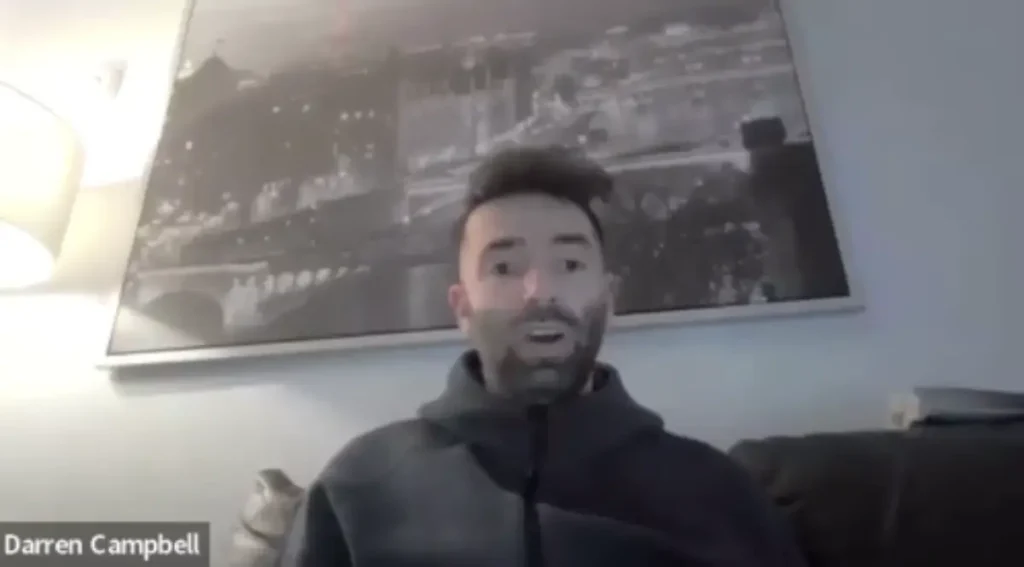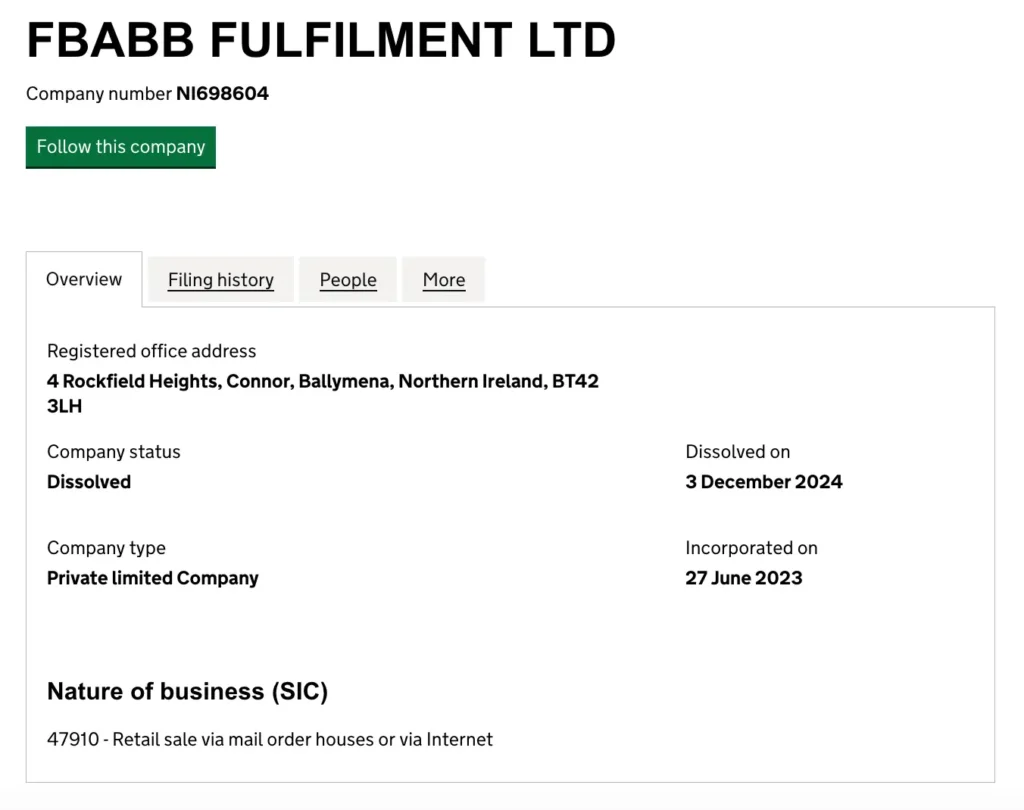It’s no secret that Darren Campbell’s FBA Brand Builder program has been under fire recently. Our reporting has led to an influx of concerns raised by his clients, and Darren’s latest call was a perfect storm of defensiveness and deflection. It’s clear many participants have been paying attention to our content and are now pressing Darren and his team for answers.
Let’s break down what unfolded during the meeting, including the key client questions and Darren’s attempts at damage control.
To protect people's privacy, we've opted to share the audio below instead of the full video—we want to avoid revealing names visible on-screen. 👇
Spoiler: The 'outside noise'—that’s us—isn’t going anywhere. Fighting for the truth doesn’t stop.

“Success Stories” That Don’t Add Up
Client: “One of the things I read was that a lot of the mentors on the program, a lot of their brands are no longer active. They actually haven’t been successful. They’re sitting with no brand… And that’s how it looks, that they’re not making money and they’re working for the FBA Brand Builder.”
Darren’s response completely sidestepped the heart of the issue:
Rather than providing evidence of mentor success, Darren pivoted to vague emotional appeals about why people join the program. This tactic failed to address the concern about mentor credibility—specifically, why so many appear to have given up on their own brands.

Hidden Fees? “Total Bullsh*t”
When asked about the hidden fees we’ve reported on extensively, Darren had little to offer in terms of clarity.
Client: “People are spending so much money on achieving sales… They don’t have the funds to take the business to the next level or to pay for their second stock order.”
Darren’s response dismissed these concerns outright:
What Darren conveniently ignored is the reality of escalating costs for clients. He labeled the concerns as “bullsh*t” but offered no counter-evidence to back up his claims. This left many wondering whether Darren even understands the financial strain his program imposes.

Mentors Without Brands
Client: “If mentors have given up on their brands, why are they not progressing? They seem to be full-time within the program, and that’s just my concern.”
Darren vaguely acknowledged the question but gave no direct answers:
Darren’s response failed to address the specific concern about mentor success and instead relied on vague name-dropping and promises. No concrete evidence was provided to substantiate his claims about the supposed success of these individuals.
It's also worth noting that Fast Ambition's Ryan Stewart, Matt Florida, Jason McKay, and Graham Colmer are all members of Darren's team. Interestingly, Graham works for the Zab Twins but still appears in some of the FBA Brand Builder calls and meetings.
Is It the Client’s Fault?
In a particularly defensive moment, Darren turned the tables on his clients:
This rhetorical tactic attempted to absolve the program of responsibility for its failings. Darren framed success as entirely dependent on the individual, ignoring the many documented instances where poor mentorship and incomplete advice have left clients floundering.

The Blame Game: Where Darren Deflects
When faced with criticism, Darren employed the classic tactic of deflection:
While effort and accountability are important, Darren’s response conveniently ignored the numerous examples of misleading advice, hidden fees, and inadequate mentorship that we’ve documented.

A Growing Disconnect Between Promises and Reality
Clients on this call were increasingly unafraid to challenge Darren, making the disconnect between the program’s promises and its delivery even more apparent.
Client: “I keep hearing about these success stories, but what about those of us who aren’t seeing results? Why does it seem like some people get more attention or resources?”
Darren responded with a mix of motivational platitudes and vague reassurances:
This failed to address why some clients feel left behind, particularly those who have invested significant sums but are struggling to break even. Darren avoided specifics, opting instead for generalized statements designed to deflect further probing.

Success Stories or Convenient Props?
When pressed about the program’s reliance on heavily promoted success stories, Darren leaned into familiar rhetoric:
While this claim sounds compelling, it glosses over the inconsistencies we’ve previously highlighted—such as clients who achieve temporary success but later struggle to maintain it due to lack of ongoing support or escalating costs.
Darren’s refusal to address these patterns directly raised further questions about the program’s long-term viability.

Accountability Avoidance
A recurring theme in Darren’s responses was his attempt to shift responsibility away from the program:
While it’s reasonable to expect clients to take initiative, Darren’s dismissive tone ignored the valid criticisms about the lack of actionable guidance provided by his team. This is particularly frustrating for clients who paid £150 per month expecting hands-on support.

Key Takeaways: Deflection Won’t Save This Program
This call was a revealing glimpse into how Darren handles pressure. Rather than engaging transparently with client concerns, he chose to deflect, dismiss, and deny.
What We Observed:
- A lack of concrete answers about mentor credibility.
- Dismissive attitudes toward valid concerns about costs and results.
- A reliance on vague, motivational language rather than actionable advice.
What’s Missing:
- Accountability for program shortcomings.
- Transparency about hidden costs and mentor success rates.
- A willingness to engage with constructive criticism.

